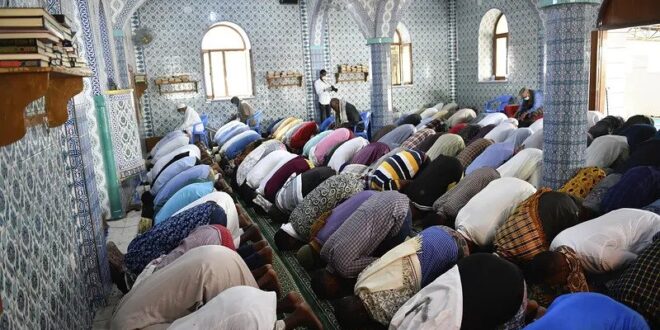Kyrgyzstan's new law on religions
After lengthy debates, the Žogorku Keneš has approved at first reading a measure that, in the name of the fight against extremism, has aroused not a few perplexities within the religious communities. Among the new provisions is a ban on missionaries of any denomination going around preaching in homes according to their own inspiration. And in religious training institutes, students who have not completed 11 classes of compulsory schooling may not be accepted.
Bishkek (AsiaNews) - The new law on religious freedom in Kirghizstan, after lengthy discussions and second thoughts, is now close to final approval, with Žogorku Keneš voting in favour at first reading.
The text continues to arouse many misgivings among both representatives of religious communities and human rights activists, but the authors assure that the intention is merely to ‘put some order into the matter’.
The director of the State Commission for Religious Affairs, Azamat Jusupov, says that ‘there is no intention to impose limitations on educational processes, at home and abroad’, referring to the many ‘clandestine madrasas’ that have been sanctioned in recent times.
Speaking before representatives of religious associations from all regions of the country, Jusupov seeks their consensus that ‘too much freedom of religious profession can be a problem’.
Among the new features of the law is a ban on missionaries of any kind from going around the home preaching according to their own inspiration, a rule that will end up affecting Jehovah's Witnesses in particular, but also followers of Islam who engage in Da'wa, the ‘propaganda’ of the home.
Moreover, students who have not completed the 11th grade of compulsory education will not be accepted in religious training institutes, as teenagers are too exposed to the influence of radical religious ideals, and an attempt is being made in this way to limit extremism.
Another ban will be imposed on teachers and religious educators, who will not be allowed to conduct individual lessons outside the walls of the madrasa, especially in private homes. It will not be forbidden to go to study in institutions abroad, but the list of those allowed will be reduced, and one will only be allowed to go to those recommended by the competent bodies.
These and other ‘anti-extremist’ measures are similar to those introduced in Tajikistan's legislation in recent times, where penalties are even harsher than the Kyrgyz prohibitions. The illegal religious education of minors, for example, is punished by Tajik law with up to three years in prison.
In Kyrgyzstan, teachers of religious subjects will now be placed on an official list, which delimits their activities in the territory in rather strict terms, stated in their licence documents. If a preacher wants to speak in the media about religious issues, he will have to obtain special permission from the authorities for this.
The construction of religious buildings on private land, in gardens or inside houses will also be forbidden by law, especially in places where there is already a mosque, and under no circumstances will the building of a second one be permitted. The government assures that a decree will be issued that defines the permitted amount of ‘targets for religious purposes’ in all population centres in the country.
Officials who prepared the text of the law assure that all points were agreed with the Muftiat of Kyrgyzstan and the Ulema Council, and the religious leaders consulted raised no objections to the decisions made.
However, some deputies of the Žogorku Keneš also spoke against the draft law. One of them, Žalolidin Nurbaev, said that ‘the worst things come from the lack of morality and religiosity among people’ and that it was not the case to punish Da'wa preachers, who ‘do not even enter houses, they just knock on the door and invite people to come to the mosque prayer’; in short, they ‘try to spread good and help the poor’, concluding that ‘if we ban this too, what will our children be like in 10-15 years?
In the Kyrgyz public, opinions on the law are divided, with women complaining that da'wati insist even when there are no men in the house. Many others, on the other hand, approve of itinerant preaching, warning, however, that there are also braggers and swindlers, who come under the guise of making religious appeals and take advantage of this to steal and extort money. With the new rules, it is hoped in effect to avoid the most unpleasant effects of uncontrolled religious propaganda.
07/02/2019 17:28







.png)










